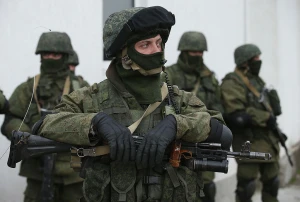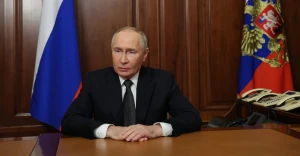
European Commission examines options to confiscate Russian and pay for Ukraine's recovery
The European Commission is studying legal options for confiscating Russian public and private property as payment for the restoration of Ukraine
This is reported by Politico publication.
According to the document journalists of the publication obtained, the goal would be "identifying ways to strengthen the tracing, identification, freezing and management of assets as preliminary steps for potential confiscation."
It is planned to confiscate the assets of the Russian central bank for almost 300 billion, as well as the assets and incomes of individuals and legal entities included in the EU sanctions list. The idea was discussed in May, in addition to Ukraine, Poland, the Baltic states and Slovakia supported it.
In October, EU leaders instructed the European Commission to explore legal options for seizing Russian assets that are currently frozen.
The problem is that there is currently no legal mechanism for confiscating Russian assets, as US Treasury Secretary Janet Yellen noted back in May. It would have to be created.
"There may be a path for the EU to validly confiscate frozen assets under international law, but it is likely a narrow, a long and an untested path," claimed Jan Dunin-Wasowicz, a lawyer at Hughes Hubbard & Reed.
This does not deter the Commission from considering this issue.
As for private assets belonging to individuals or organisations under sanctions, Brussels is preparing a proposal to recognise evasion of sanctions as a crime, which would facilitate confiscation only in the case of a criminal conviction. And even in this case, the European Union will have to appeal every case in court, and the trial will last for years.
The reason is that many of these assets will be considered foreign investments that enjoy protection from expropriation without compensation and the right to fair and equal treatment by Russia's international treaties with many EU countries.
The confiscation authority also needs to establish a clear link between the owner of the property and the war in Ukraine.
As for the central bank's frozen foreign exchange reserves, the document says: "It is generally considered that they are subject to immunity."
"To ensure proportionality, you would need to look at who are the owners, what did they do, et cetera," claimed Stephan Schill, professor of international and economic law and governance at the University of Amsterdam.
Assets of state-owned enterprises owned by Russia are not subject to such a convention. Still, their confiscation may cause problems related to confiscating private property and the need to demonstrate a sufficient connection with the Russian Federation.
The European Union is also considering an "exit tax" on the assets or income of sanctioned individuals who want to withdraw their property from the EU. This may lead to legal problems, as it will target a specific group of individuals contrary to the provisions of international law on non-discrimination.
- News














































